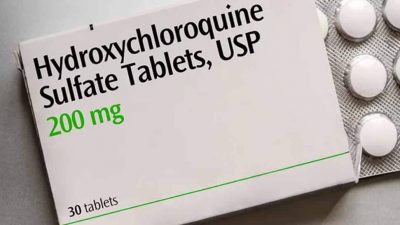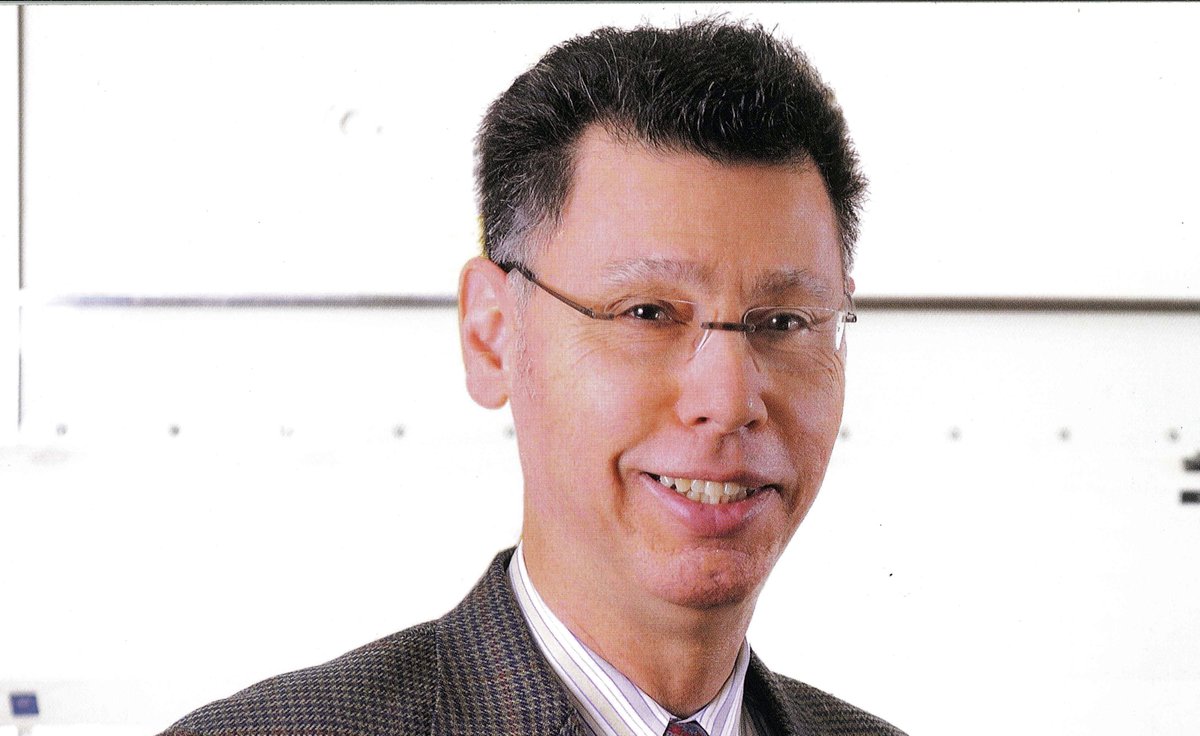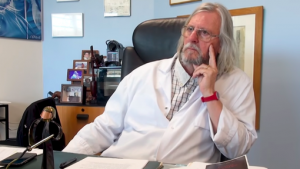Academia Stoops to Defamation over Hydroxychloroquine (HCQ). Groundless Accusations against 2 World-class Scientists
Public, error-ridden attack by Yale faculty members on Distinguished Yale Epidemiologist, Dr. Harvey A. Risch

There are two world-class scientists at the center of the Covid-19 hydroxychloroquine storm.
They are Dr. Didier Raoult at the IHU Medical Institute in Marseille, and Dr. Harvey Risch at Yale University.
The present article confronts a shabby injustice to Dr. Risch.
On August 4, 2020, a group of 24 Yale professors signed a public letter of “grave concern,” and posted it to medium.com. It opens with:
“We write with grave concern that too many are being distracted by the ardent advocacy of our Yale colleague, Dr. Harvey Risch, to promote the assertion that hydroxychloroquine (HCQ) when given with antibiotics is effective in treating COVID-19, in particular as an early therapeutic intervention for the disease.”[i]
Dr. Harvey Risch is a distinguished professor of epidemiologic methods in both the Yale School of Medicine and the Yale School of Public Health. Over his career, he has been cited 40,000 times in Google Scholar, and his h-index (89) makes him “a truly unique individual.”[ii]
Because Dr. Risch’s specialty is cancer epidemiology, the Yale professors object that “he is not an expert in infectious disease methodology.”
It is strange, however, that the list of 24 detractors includes professors of bioethics, biology, economics, engineering, law, nursing, and radiology, who are not epidemiologists of anykind.
Stranger yet is that these signatories evidently failed to check for errors in their open letter – posted and seemingly crafted by former AIDS activist-turned epidemiologist, Asst. Prof. Gregg Gonsalves, who received his PhD from Yale Graduate School of Arts and Sciences/School of Public Health in 2017.[iii]
The Groundless Charges Against Dr. Risch
Image on the right is Dr. Risch

To understand the context of these charges, it is first important to grasp the simple, common-sense Covid-19 strategy advanced by Dr. Risch:[iv]
- it applies to the outpatient treatment of symptomatic, high-risk Covid-19 patients
- it applies to the early days of the infection, while Covid-19 is still basically a cold
- it involves a short treatment course of low doses of hydroxychloroquine/azithromycin, and possibly zinc
- its purpose is to prevent hospitalization, where second stage pneumonia becomes much more dangerous for high-risk patients.
In terms of Dr. Risch’s strategy above, the following quoted charges against him are false and irrelevant:
- “He has not been swayed by the body of scientific evidence from rigorously conducted clinical trials, which refute the plausibility of his belief and arguments. Over the last few weeks, all of us have spent considerable time explaining the evidence behind HCQ research, as it applies to early and late stage COVID-19 patients to the scientific community and general public, and now are compelled to detail the evidence in this open letter.”
Comment: There are currently 68 HCQ studies in existence, 41 of them peer-reviewed, arguing both for and against hydroxychloroquine.[v] Very few examine its outpatient efficacy in early stage (days 1-5) Covid-19 infection in combination with azithromycin, which is what Dr. Risch has been talking about all along.[vi]
The charge that he is not “swayed” in his specific claim by their less precise and less expert perspective, is immaterial.
- “We are seriously alarmed for the safety of patients and the coherence and effectiveness of our national COVID-19 emergency response when misinformation about HCQ is spread and when rigorous scientific evidence and consensus produced by the community of expert researchers in infectious diseases, federal agencies and national and global health organizations are not heeded…[alluding to Dr. Risch]
…the evidence thus far has been unambiguous in refuting the premise that HCQ is a potentially effective early therapy for COVID-19.” (my emphasis)
Comment: The italicized statement, repeated several times throughout the letter, is utterly and demonstrably false.
For example, a recent 22-author study of 3,737 patients, led by France’s top microbiologist Dr. Didier Raoult, has been published and stored in a U.S. National Institutes of Health database: “Outcomes of 3,737 COVID-19 patients treated with hydroxychloroquine/azithromycin and other regimens in Marseille, France: A retrospective analysis.”[vii]
This study lists other studies of the efficacy of early use hydroxychloroquine+azithromycin.
- “Finally, we point to the recent memorandum from the US Food and Drug Administration revoking the Emergency Use Authorization for HCQ that has assembled the data on the drug as of June 2020 (Food and Drug Administration Memorandum[viii] Explaining Basis for Revocation of Emergency Use Authorization for Emergency Use of Chloroquine Phosphate and Hydroxychloroquine Sulfate).”
Comment: The 24 signatories evidently did not read the revoked FDA memorandum, which clearly states that its focus was hospitalized patients, whereas Dr. Risch has been talking about outpatients: The revoked memorandum reads:
“Current U.S. treatment guidelines do not recommend the use of CQ or HCQ in hospitalized patients with COVID-19 outside of a clinical trial, and the NIH guidelines now recommend against such use outside of a clinical trial.”[ix]
On July 30, FDA Commissioner Stephen Hahn clarified this critically important point for all the non-investigating journalists and professors who continue to parrot the falsity that the revoked Emergency Use Authorization revoked on June 15 had community application in the doctor-patient relationship.[x]
- “The FDA has rescinded the EUA for HCQ for a reason: the vast preponderance of the evidence suggests that the drug is without merit in clinical care for COVID-19 and presents real dangers to patients by its continued use.”
Comment: To repeat, Dr. Risch recommends low-dosage HCQ for outpatient care during the first 5 days, not for hospital care.
Regarding the alleged “real dangers” of HCQ, the current CDC travel advisory for travelers in malaria countries says:
“Hydroxychloroquine can be prescribed to adults and children of all ages. It can also be safely taken by pregnant women and nursing mothers.”[xi]
- “It is critical that we follow the science and where the evidence leads us on a quest to treat and prevent COVID-19. In this climate, it’s important to rely on the data above all else when making clinical or regulatory decisions. Making these kinds of choices guided by personal endorsements outside of the context of the existing scientific evidence is medicine by testimonial and risks people’s lives…
While minority opinions, anecdotal evidence, novel interpretations and challenges to orthodoxies in a field can be important, at some point, the application of the scientific method generating evidence from multiple, well-designed clinical trials and observational studies does matter and should be heard over the noise of conspiracy theories, purported hoaxes, and the views of zealots.”
Comment: It takes many months to conduct randomized clinical trials. Indeed, most Covid-19 hydroxychloroquine trials were halted after the Lancet’s May 22 five-continent heart-risk hit piece on hydroxychloroquine, identified by Lancet editor-in-chief Dr. Richard Horton as “a fabrication” and “a monumental fraud.”[xii]
With most of the RCTs halted, there are still many observational studies (as called for in the letter’s quotation immediately above) reporting HCQ+Azithromycin efficacy.[xiii]
The insulting final remarks above presumably round out the introductory statement of “grave concern” about “the ardent advocacy” of outpatient hydroxychloroquine+azithromycin promoted by Dr. Harvey Risch.
Rather than representing “the noise of conspiracy theories, purported hoaxes, and the views of zealots,” Dr. Risch recently won a major public health reward for his specialty, cancer epidemiology, and for his epidemiologic methods in general.[xiv]
In summary, in this matter it is clear that these 24 relatively inexperienced people are way out of their depth.
The betrayal behind their appalling act of public condemnation against a fellow university colleague brings Shakespeare to mind.
It is the worst thing I have seen in the area of medical discourse since I began my career as a medical/public health librarian in 1978.
During the years when accuracy, respect, and civility prevailed in the United States, a rude and ignorant public letter such as this would have been disciplined by a university dean or president or board, and placed on the human resources files of all involved.
*
Note to readers: please click the share buttons above or below. Forward this article to your email lists. Crosspost on your blog site, internet forums. etc.
Elizabeth Woodworth is a frequent contributor to Global Research.
Notes
[i] “Statement from Yale Faculty on Hydroxychloroquine and its Use in COVID-19,” 4 August 2020
(https://medium.com/@gregggonsalves/statement-from-yale-faculty-on-hydroxychloroquine-and-its-use-in-covid-19-47d0dee7b2b0). If this link should be taken down, it does reside elsewhere: contact @abettervision on Twitter.
[ii] Dr. Risch’s 40,067 citations and his h-index of 89, as of August 6, 2020, are shown at https://scholar.google.ca/citations?user=E1US9ucAAAAJ&hl=en. The h index is a metric for evaluating the cumulative impact of an author’s scholarly output and performance; measures quantity with quality by comparing publications to citations. “An h index of 60 after 20 years, or 90 after 30 years, characterizes truly unique individuals.” (https://www.pnas.org/content/102/46/16569).
[iii] Asst. Prof. Gregg Gonsalves graduated in 2017 (https://medicine.yale.edu/profile/gregg_gonsalves/) and has used his Yale identity on Twitter to make inflammatory political statements over time (https://www.patheos.com/blogs/progressivesecularhumanist/2020/05/yale-epidemiologist-trumps-coronavirus-response-close-to-genocide/, https://twitter.com/gregggonsalves/status/1258372786617278464)
(His Twitter identity is: I work @Yale focusing on operations research/epidemiology for infectious disease. In the real world: been an AIDS activist for ~30 yrs. Asst Prof YSPH.)
[iv] Harvey A. Risch, “Early Outpatient Treatment of Symptomatic, High-Risk Covid-19 Patients that Should be Ramped-Up Immediately as Key to the Pandemic Crisis,” Amer. J. Epid, 27 May 2020 (https://academic.oup.com/aje/advance-article/doi/10.1093/aje/kwaa093/5847586).
[v] List and summary at https://c19study.com/
[vi] Harvey A. Risch, “Early Outpatient Treatment of Symptomatic, High-Risk Covid-19 Patients that Should be Ramped-Up Immediately as Key to the Pandemic Crisis,” Amer. J. Epid, 27 May 2020 (https://academic.oup.com/aje/advance-article/doi/10.1093/aje/kwaa093/5847586). The American Journal of Epidemiology is the world’s top epidemiology journal.
[vii] Jean-Christophe Lagier, et al., “Outcomes of 3,737 COVID-19 patients treated with hydroxychloroquine/azithromycin and other regimens in Marseille, France: A retrospective analysis,” Travel Med Infect Dis. 2020 July-August; 36: 101791; Published online 2020 Jun 25. doi: 10.1016/j.tmaid.2020.101791 (https://www.ncbi.nlm.nih.gov/pmc/articles/PMC7315163/).
[viii] U.S. Food and Drug Administration, “Memorandum Explaining Basis for Revocation of Emergency Use Authorization for Emergency Use of Chloroquine Phosphate and Hydroxychloroquine Sulfate,” 30 June 2020 (https://www.fda.gov/media/138945/download).
[ix] U.S. Food and Drug Administration, “Memorandum Explaining Basis for Revocation of Emergency Use Authorization for Emergency Use of Chloroquine Phosphate and Hydroxychloroquine Sulfate,” 30 June 2020 (https://www.fda.gov/media/138945/download)
[x] Tal Alexrod, “FDA chief: Hydroxychloroquine use a decision between doctor and patient,” The Hill, 30 July 2020 (https://thehill.com/policy/healthcare/509733-fda-chief-hydroxychloroquine-use-a-decision-between-doctor-and-patient).
[xi] U.S. Centers for Disease Control and Prevention, 2017 (https://www.cdc.gov/malaria/resources/pdf/fsp/drugs_2017/Hydroxychloroquine_2017.pdf).
[xii] Roni Caryn Rabin, “The Pandemic Claims New Victims: Prestigious Medical Journals,” New York Times, 14 June 2020 (https://www.nytimes.com/2020/06/14/health/virus-journals.html).
[xiii] Some of these may be seen by Googling: https://www.google.com/search?client=firefox-b-d&q=hydroxychloroquine+azithromycin+%22observational+stud*%29
[xiv] Association of Schools & Programs of Public Health, “Yale: Dr. Harvey Risch Wins $50,000 Ruth Leff Siegel Award,” 9 August 2018 (https://www.aspph.org/yale-dr-harvey-risch-wins-50000-ruth-leff-siegel-award/).


